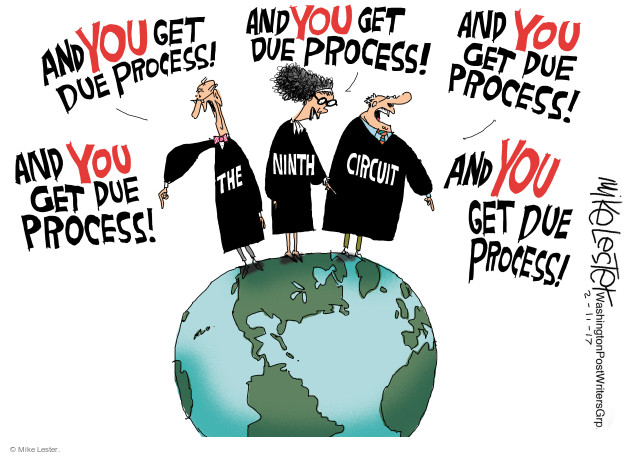Article-Detail

Property Rights and Due Process At Work
In 1689, Philosopher John Locke theorized in the Two Treatises of Government that a person owned himself and his labor and his labor brought about ownership of the land he worked. In the context of the time, compensation was not an issue because land was plentiful and money was not. Therefore, you and your labor brought with it ownership rights to the land you worked. That philosophy has been argued and translated for centuries and has been applied to labor law and your “ownership” or “property rights” of your job. With your property rights to your job comes government (legal) protection from anyone who tries to deprive you of your property without due process, essentially, you can’t be fired on a whim or over a rumor. Due process practices vary from one organization to the next but all are consistent with labor law, and the National Labor Relations Act (NLRA) laying out steps an organization has to take in order to deny an employee rights to their particular employment (termination).
As of September 5, 2019 a google search of ‘property rights’ will turn up 270 million links mostly related to due process practices, but also labor lawyers and articles written to inform you of your protections against unscrupulous termination. It is important for bosses and leaders to be aware of these laws so that rights and employees’ rights are protected and an employee termination can be executed properly. To follow the law can seem unwieldy but the headaches, embarrassment, and frustration that comes with appeals and reversals are much worse. Furthermore, the lost trust and confidence of your people will cost you much more in the long run if you don’t commit to doing the right thing, every time, with every employee. Employees and their representatives need to know employee rights to be sure that they are treated properly while at work. Essentially, whatever your boss claims has to be substantiated. Specific practices have to be laid out with an explanation and you have the right to challenge it, in legalese, you have the right to confront and cross examine anything against you. A rumor or whim does not stand up.
In the context of labor law and NLRA, your “property” includes pay rate, hours, leave time, benefits and other perks normally included with your job. Sometimes included are your work station, or your office. I had a conversation with a thought partner on the labor side who is dealing with two employees, who hold the same job title, who feel they have property rights to the same job. One employee “owns” the position, the other believes that by the contractual rules, a recent reclassification of that position means it should be up for bid by seniority. Naturally, the person who owns the position is unhappy with the prospect of her position being put up for bid, she has the least seniority in her department. Her colleague sees the reclassification as an improvement of the position and believes the contract provides him the right to bid on it and believes he is being denied his rights to bid on this new opportunity. A fair and accurate interpretation of the contract, and the law will be necessary to make the solution clear for them. In the best of scenarios, they will remain collegial, and develop a fair practice that will be used as precedent to be applied moving forward.
The 14th Amendment of the US Constitution was adopted in 1868, just after the Civil War to address the equal protection and rights of former slaves. Through the years, the 14th Amendment has been applied to Brown v. Board of Education (1954), Roe v. Wade (1973), and Bush v Gore (2000). As a rule it limited state and local official’s power to deprive due process rights to former slaves. More than that, the government has the responsibility to protect citizens from other citizens who want to violate their rights. This is defined as equal protection meaning the government has the responsibility to protect everyone equally; one person’s rights do not trump another. Along the same line, the workplace can’t discriminate either, everyone gets the same rights and protections. The government and organizations carry out this responsibility by writing laws and contracts that detail processes. Leaders in government and in organizations apply these rules and laws in everyday life and work. Over 150 years the same laws that offered equal rights and protections to slaves would protect your rights to due process at work. It’s the beauty of our system, every scenario does not have to be listed, the rules just need to be applied by people who care enough to do it right.
Due process guarantees you protections from a boss who says he “heard something” about you and wants to hold you responsible for it. It balances power between labor and management just as it has for citizens for over 150 years. Be careful, though, due process can be a two edged sword that will also reveal what you’ve been doing at work. If you are a rule breaker who seeks to hide behind due process, you could be exposed and terminated or worse. Due process seeks to protect people who are doing the right thing at work. Doing your job, following process and protocols is the best practice. When everyone does that, organizations SOAR!
William A. Brown
September 8, 2019
https://www.classlawgroup.com/employment/california-labor-law/




